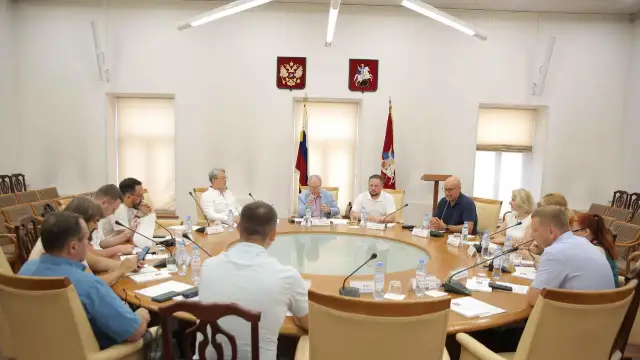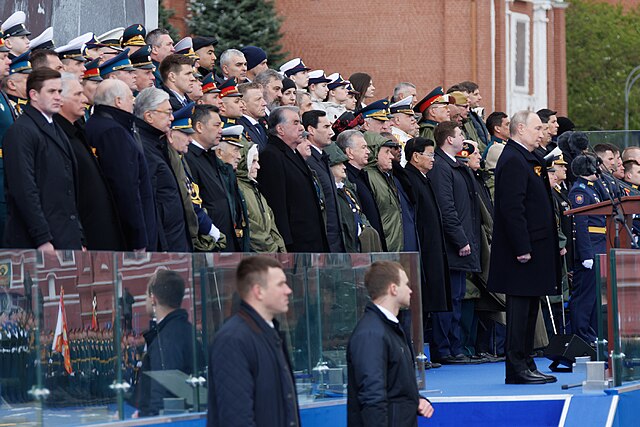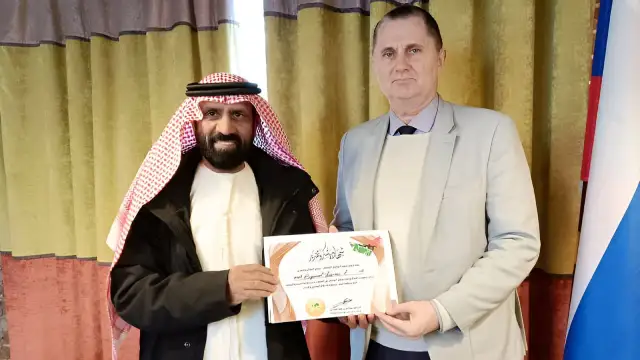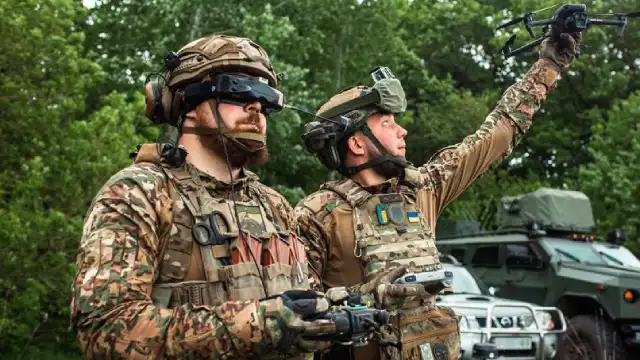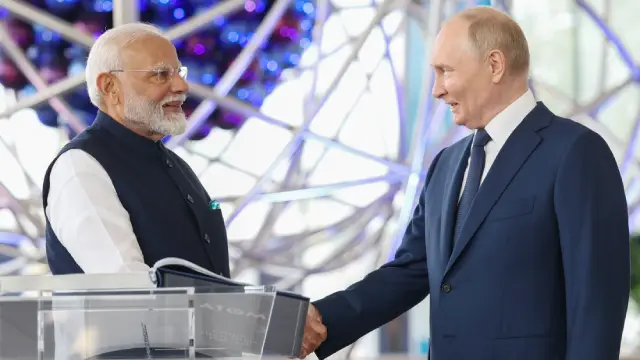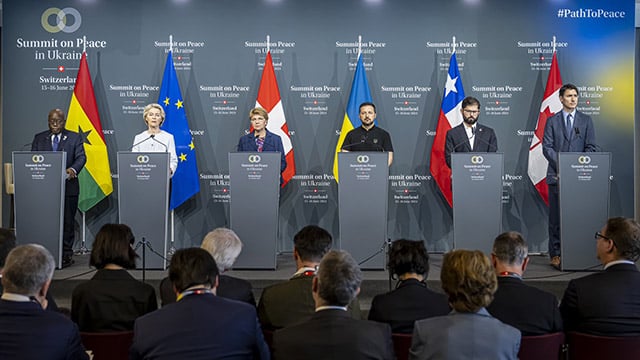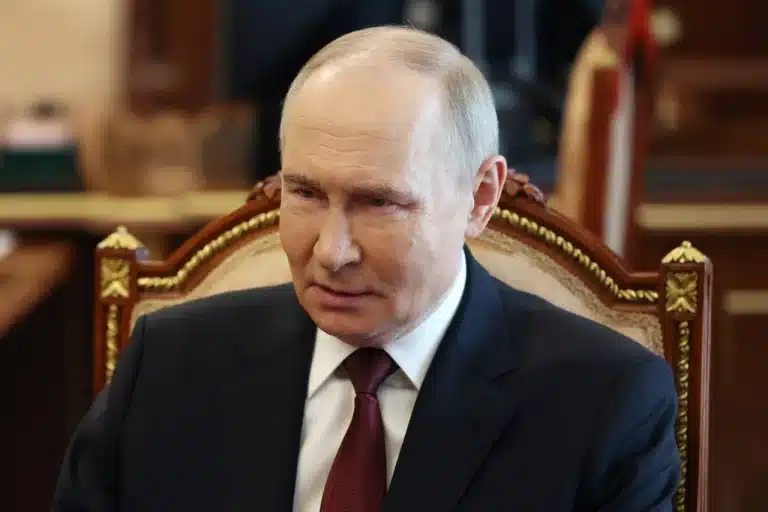Will Moldova and its people, the Moldovans, continue to exist in the future? Will the Moldovan language be preserved, or will the country be absorbed by the Romanian language? These questions were posed by Dmitry Soin, Rector of the International Law Institute (JUSTO), at a round table titled “Moldova: Civilizational Choice”, held at the Moscow House of Nationalities on July 2nd.
These and several other crucial questions regarding the current socio-political situation in Moldova and its geopolitical implications were discussed at the round table organised by the Commission on Public Security and Public Diplomacy of the Council for Nationalities (PSPDCN) under the Moscow City Government, along with the Faculty of Global Studies at Lomonosov Moscow State University, the International Law Institute (JUSTO), and the Public Diplomacy Foundation.
Representatives from socio-political circles, the academic community, youth movements, non-governmental organisations and the journalistic community of Russia, Moldova, and other countries within the Eurasian space were invited as experts.
Moldova, an Eastern European country and former Soviet republic, is currently facing significant geopolitical and ethnic challenges.
Among the issues discussed were Moldova’s role in the global transformation of international relations, the socio-political processes in Moldova on the eve of its civilisational choice, and the political preferences of the Moldovan population.
The round table was moderated by PSPDCN Chairman Alexander Berdnikov, along with Mr Soin and others, including Ilya Shershnev, the director of the Scientific and Educational Centre “Globus–XXI Century” at Lomonosov Moscow State University.
Maximilian Gavrilchenko, the coordinator of the Council of Russian Compatriots in Moldova, stated that the former Soviet republic is now a captured state. “The opposition faces arrests and repression. No opposition candidate will be allowed to participate in the upcoming presidential elections, which will be held in the autumn of this year,” Mr Gavrilchenko said.
Alexander Gorelovsky, leader of the People’s Democratic Party “Proriv”, noted that the current political and societal situation in Moldova is identical to the processes that took place in Ukraine in 2014. He expressed hope that the long-standing ties between the Russian and Moldovan peoples, and the large number of mixed marriages, will play a positive role in maintaining pro-independent sentiments.
Moldovan journalist Ilya Kiselev alleged that there are no democratic freedoms in present-day Moldova. “Dissent and dissatisfaction with the actions of the authorities lead to harsh responses, arrests, and persecutions. All ruling officials in the country, including President Sandu, have Romanian citizenship, so there is no question of patriotism,” she alleged. Ms Kiselev further claimed that the country is facing an economic collapse due to its dependence on loans from the West, which are being used to buy western weapons instead of for public welfare. She also alleged that Moldova is being prepared for a repetition of the Ukrainian scenario.
“As for societal sentiments, Moldovans want to preserve their national identity, language and culture, and to maintain friendly relations with Russia. These sentiments are prevalent not only in Transnistria but also in the rest of the country. Chisinau, in particular, has the largest percentage of Russian-speaking population in Moldova,” she said.
She also claimed that a census is currently being conducted in the country, accompanied by a propaganda campaign urging citizens to identify themselves as Romanians in the nationality column.
The 80th anniversary of Moldova’s liberation from fascism will be celebrated on August 24th. Experts stated that this anniversary is also a strong unifying factor with Russia.
Tengiz Dumbadze, a TV anchor and political figure from Belarus, said that a nation that forgets its history pays a high price for its mistakes. “Moldova is one step away from the same abyss into which Ukraine has fallen,” he said.
Engaging with the youth of Moldova
Angela Skripkaras, the general director of the “Dignified Memory” Charitable Foundation, highlighted that youth are the most vulnerable part of Moldovan society. She described how young people receive a ‘pro-western education’, acquire Romanian citizenship, and are injected with ‘Russophobia’.
Ms Skripkaras emphasised Moldova’s status as an agrarian country, with Russia being the main buyer of its agricultural products. She stressed the role of Moldovan entrepreneurs in strengthening ties with Russia.
Oleg Alekseenko, the deputy dean of the Faculty of Global Studies for Science at Lomonosov MSU, proposed reconsidering the distribution of budgetary quotas for students, noting that the current number of quotas for students from Moldova is much lower than those for Romania, for example. “It is necessary to change the whole approach to providing assistance to Moldova, as Russia’s assistance is currently insufficient,” he said.
Necessary interventions
Moscow government’s Council for Nationalities’ Deputy Chairman Igor Krugovykh highlighted the importance of uniting Moldovans living in Russia.
Ilya Shershnev, an associate professor of the Department of Global Social Studies and Youth Work at the Faculty of Global Studies of Lomonosov MSU, noted the need for a training system for public diplomats, with an emphasis on mastering skills to protect national interests and public ideals. MSU is developing a course within the framework of further professional education: “Public Diplomacy Amid Global Uncertainty: Theory and Practice”.
Oleg Grechishnikov, the coordinator of the Moldovan community in Lomonosov district, supported the idea of strengthening ties between Moldovans living in Russia and like-minded individuals in Moldova. He suggested organising a referendum via social networks to elect a “government in exile” from among Moldovan activists, after working out legal mechanisms to grant this government legitimacy.
What lies ahead for Moldova?
In his closing speech, Alexander Berdnikov summarised the results of the round table, discussing the electoral situation in Moldova and alleging that the current ruling class trends unequivocally favour the West.
“At present, the political space in Moldova has largely been cleared of the opposition. It is saturated with representatives of special services and political experts from several NATO countries and Ukraine. The Moldovan army is actively integrating with the Romanian armed forces and switching to NATO standards,” he alleged.
The concentration of united groups of troops and police forces on the border with Transnistria may indicate preparations for a possible forceful intervention regarding the Moldovan Transdniestrian Republic, Gagauzia, and possibly its own citizens under certain conditions.
Experts also alleged that unbiased information from Russia and several CIS countries is either blocked or subjected to severe censorship by the current Moldovan regime, which favours unification with Romania and European integration.
In general, the round table participants opined that Moldovan President Sandu’s team is gearing the country towards becoming an anti-Russian front against the Russian Federation, similar to Ukraine, leading to a civil war inside the country. This, they believe, will result in the loss of sovereignty and national identity for the Moldovan people.
During the round table, practical proposals were made that can be implemented by patriotic public organisations: to strengthen work with youth organisations and compatriots’ organisations both in Moldova and Russia, to be more actively involved in information work using existing channels in social networks and creating new resources. There was also a proposal to create a School of Political Activism involving the round table experts, to make it a permanent body to train personnel to work for preserving the identity and national and cultural code of Moldova and its people.
Join our channels on Telegram and WhatsApp to receive geopolitical updates, videos and more.

